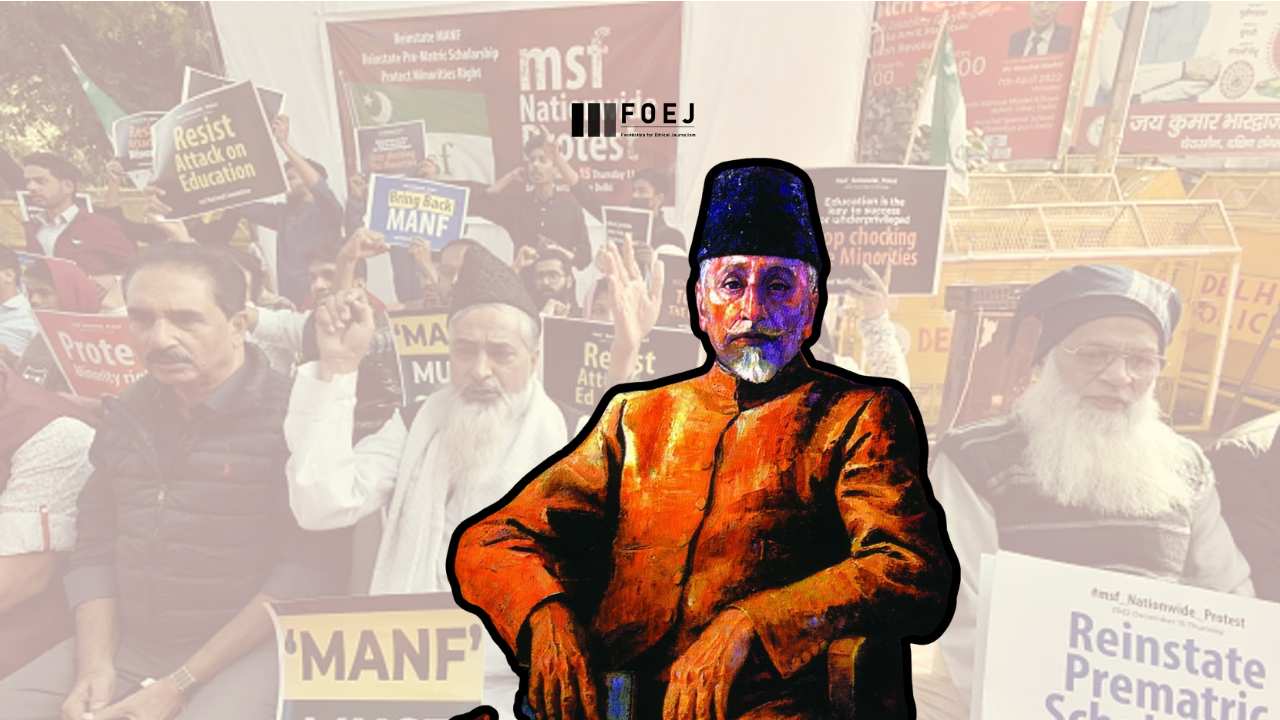Recently, the Ministry of Minority Affairs (MoMA) announced the abrupt closure of the Maulana Azad Education Foundation (MAEF), sparking criticism for hindering educational opportunities for marginalized Muslim students.
The decision, delivered by MoMA’s undersecretary, Dhiraj Kumar, on February 7, came without transparent justification, drawing criticism from observers. The directive to shut down MAEF originated from the Central Wakf Council (CWC), the regulatory body overseeing education for minority groups.
The closure directive mandates the termination of forty-three contractual employees, which raised eyebrows. Despite the Foundation’s substantial funds, amounting to Rs. 1073.26 crore as of November 30, 2023, with a liability of Rs. 403.55 crore, MoMA has directed the surplus funds to be transferred to the Consolidated Fund of India.
Under the directive, fixed assets are to be transferred to the Central Waqf Council, which will assume administrative responsibility for the affected employees. The fate of these employees remains uncertain, pending legal proceedings initiated by the Foundation.
Given these developments, MoMA emphasizes the need for closure proceedings, highlighting the urgency of the situation. However, the lack of transparency surrounding the closure decision raises concerns about the government’s dedication to inclusive development and equitable access to education for all minority communities.
Role of the Foundation
Thousands of Muslim students and hundreds of Muslim educational institutions benefit from various schemes operated by the Foundation annually, and these students will lose the aid aimed at better education. Founded with the aim of enhancing educational opportunities for disadvantaged social groups, the Maulana Azad Education Foundation received its funding from the Ministry of Minority Affairs, Government of India.
Notably, the minister of minority affairs serves as the ex-officio president of the foundation. Since its registration under the Societies Registration Act, 1860, on July 6, 1989, the Foundation has played a vital role in advancing educational empowerment initiatives.
Through flagship programs like the Begum Hazrat Mahal National Scholarship Scheme and the Khwaja Gharib Nawaz Skill Development Training Scheme, MAEF aimed to enhance employment prospects for minorities and awarded scholarships to deserving girls from religious minority backgrounds.









